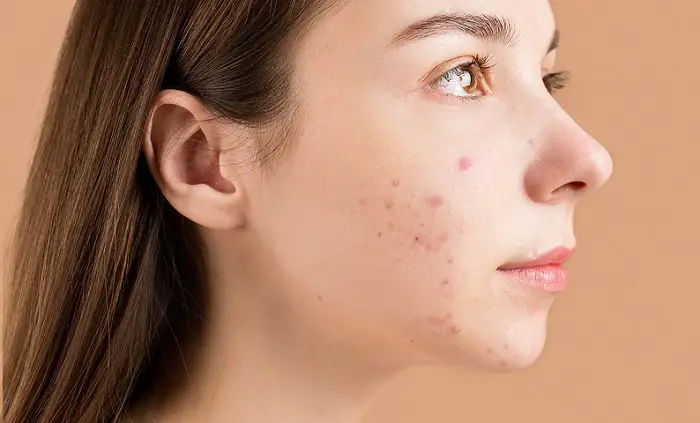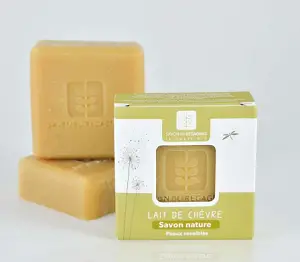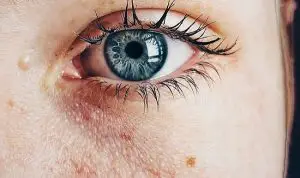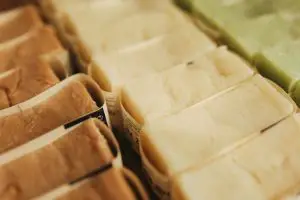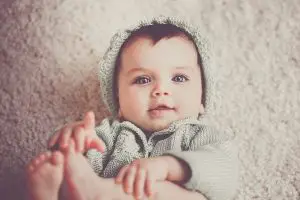While it is generally attributed to a teenage problem, acne can nevertheless form during childhood. This is surely the case for your daughter or your boy who sees pimples or blackheads appear on his previously smooth skin. First of all, rest assured, their arrival on a child is very rarely synonymous with a serious problem. However, they can lead to self-deprecation and complexes in the child. This is why we will see today: how to get rid of acne in children? First, we will find out why your child has acne. Subsequently, we will see what solutions exist against acne in children.
In this section:
Childhood acne: why does it appear?
What is acne?
Acne is a very often painless and harmless skin pathology, which is recognized by the manifestation of pimples, comedones and / or microcysts. There are two types of acne. We will talk about inflammatory acne when there are pimples and retentional acne when there are blackheads and microcysts.
This acne skin disease is linked to hyperseborrhea, that is to say the secretion of sebum in too large a quantity. In other words, the sebaceous glands located under the skin, produce an abnormal and too large amount of sebum (natural skin oil). Unfortunately as a result, the skin will become more oily and acne prone. At the same time, this excess of sebum encourages the spread of bacteria naturally present in the skin. And these then cause inflammation that manifests itself physically by the formation of pimples.
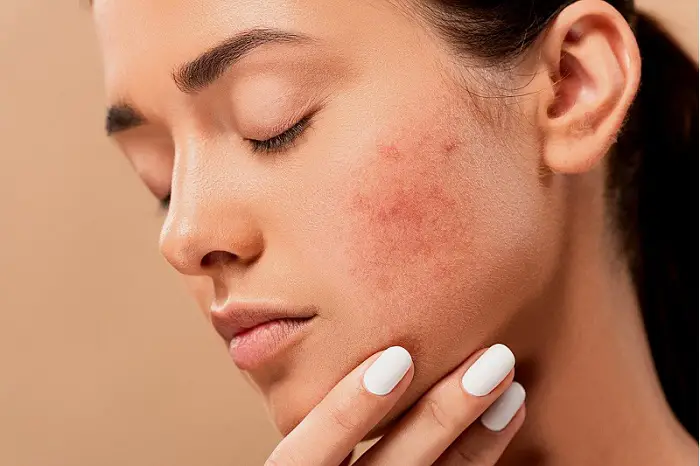
Are available 3 stages of acne that will be recognized by the number of buttons. We will speak of mild acne when there are few buttons and / or they form infrequently. We will talk about severe acne if the person has many pimples. And finally moderate acne which is between the two stages.
What are the reasons your child has acne?
The appearance of pimples in a girl or a boy is often mild. Indeed, the organism and the skin appear to be connected. So the formation of pimples and acne in a child is usually just a sign that the body is changing.
Acne normally occurs around the age of 11-12, at the onset of puberty. This is because between 10 and XNUMX years old, hormones change in order to transform the body and train it, among other things, for reproduction. This generates an increase in hormonal secretions which in turn generate the increase in sebum and therefore acne.
If your child has pimples before age 9, their acne will be considered early. It should be noted that the number of early puberty continues to increase in our modern societies, most certainly because of endocrine disruptors. It is therefore not uncommon for young children to see the first signs of puberty develop before middle age. These signs can of course be pimples and blackheads, but also breast development in girls or increased hair growth in boys.
In conclusion, when your child has acne coming on, it is very plausible that he is entering a period of hormonal fluctuations and therefore in puberty.
It is also important to note that other elements can amplify the appearance of acne in children:
- The lifestyle. Certain lifestyle habits (too fatty or too sweet food, vitamin deficiency, poor sleep, etc.) are likely toworsen acne in children.
- Skin hygiene. Regarding this factor, poor skin hygiene is not going to induce acne but simply stimulate it. Indeed, know that when the pores of the skin are found to be clogged, retentional acne in particular, has more ability to appear. As a result, a polluted environment, oily or comedogenic cosmetics, etc. are all elements that can prevent the outlet of the sebum and therefore accentuate early acne.
- Frictions (surgical masks, scarves, jacket which rubs etc) also risk amplifying the arrival of buttons in a child.
- Perspiration abundant and frequent which accentuates the multiplication of bacteria.
- Consumption of certain medications.
How to eliminate acne in a child?
The onset of acne in a child is usually the result of hormonal upheavals. It can therefore be difficult for a child to get rid of it completely. Although important treatments succeed. That said, it will be quite possible to reduce their aggravation thanks to prevention, specific products to medical treatments.
What products to use to get rid of early acne?
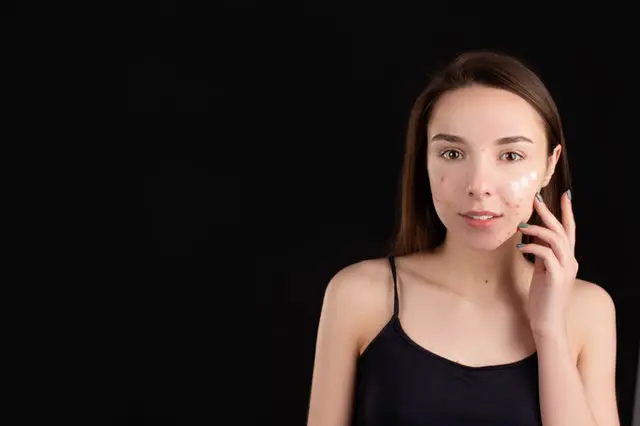
The first local remedies that will help limit acne and pimples in a child consist in using cosmetics and soft, non-comedogenic, non-stripping and non-toxic soaps.
First, you have to start by using cosmetics non-comedogenic, which contain water and not oil. Do not hesitate to seek advice from a health professional (pharmacist, dermatologist, doctor).
He has to wash his skin daily twice a day: morning and evening with a mild soap with neutral pH. For this, adopt a superfatted soap, natural and if possible from organic farming which contains much less chemical or toxic substances and synthetic preservatives often qualified as endocrine disruptors. We advise you goat's milk soap which sometimes works miracles on acne and pimples in children.
We suggest you Goat's milk soap from the Savonnerie du Regagnas brand
The reasons for adopting it?  Perfectly suitable for the whole family: young children and sensitive skin.
Perfectly suitable for the whole family: young children and sensitive skin.  Rich in organic goat milk: 20% of the total formulation for a very mild soap.
Rich in organic goat milk: 20% of the total formulation for a very mild soap. The ingredients are natural and organic. Its formula is allergen-free and petrochemical-free (toxic and irritating to the skin).
The ingredients are natural and organic. Its formula is allergen-free and petrochemical-free (toxic and irritating to the skin). Cold saponified, it contains only natural compounds and sulfate-free.
Cold saponified, it contains only natural compounds and sulfate-free.
Healthy lifestyle against acne and pimples in children
Even though early acne is usually hormonal in origin, your lifestyle may make it worse. Indeed, our body and our skin are closely connected. In other words, everything that is going to go inside our body, is going to have an impact on the external state of our body. Many lifestyle habits can therefore amplify the development of pimples in children.
First, pay attention to your child's food intake. Avoid foods that are too fatty and too sweet, prepared meals, fast food, sugary drinks, refined sugars etc. All of these foods are packed with saturated fat and fast sugar. They will therefore increase the conception of sebum. On the contrary, prefer the consumption of fresh foods such as fruits and vegetables. These are full of vitamins, minerals, trace elements and antioxidants that take care of the skin and health. Finally, prefer a vegetable rather than animal consumption excessively rich in toxins and pro-inflammatory.
Beware of foods and products suspected of being endocrine disruptors. They disrupt the body's hormonal system and are believed to have a role in triggeringearly acne.
Urban artist he must drink at least 1,5l of water per day to hydrate the skin and limit acne. Warning to stress that triggers the stress hormone cortisol. This hormone will particularly affect the structure and quality of the skin. Thus acne and pimples will tend to show up. Finally, your child should always shower after sweating in order to prevent the proliferation of bacteria.
Observe some hygienic skin rules
Beyond a healthy lifestyle, skin hygiene is also essential for limit the development of acne in children. We advise you to follow a certain number of daily conditions:
- Cleanse his skin daily in the morning and evening before he goes to bed. To do this, use a mild soap that does not irritate and is suitable for the face.
- Avoid the use of fatty products (oil, cream made from oil, etc.). And don't forget that less cosmetics for children = better skin health.
- Remove all irritating products and strippers from his routine.
- Avoid your child touching, scratching or piercing their pimples which could become infected and cause scarring.
- Avoid haircuts in the style of bangs and highlights. These prevent perspiration from evacuating well and do not allow the skin to breathe well. So many factors favoring juvenile acne.
- Watch out for the sun which dries up the skin and accentuates the manifestation of pimples in children.
Treatments under medical supervision against juvenile acne
To fight mild acne in children, the most common treatments will be in local form. There are two well-known treatments: benzoyl peroxide and retinoids. They will be prescribed after consulting a health professional (doctor or dermatologist). It will take about three months to see satisfactory results.
If your child is affected by acne moderate ou strict, he may need to use antibiotics. In these cases it will require the authorization and monitoring of a health specialist.
In the event that your child's acne bothers him or that other symptoms appear, do not hesitate to consult a doctor, a dermatologist or a naturopath who will be able to guide you and order the solutions that suit you.

